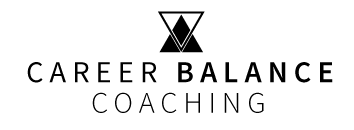Being Bad at Something New
“Be brave enough to be bad at something new.” – Jon Acuff
A lot of my social media and blog posts are inspired by things that happen in my everyday life or interactions with clients. The quote above is a bit of both. It’s something that I’ve told clients repeatedly, and it came to mind today as I tried a new workout activity. The thing is, there are a lot of benefits to being bad at something new. Read on to find out how it applies in both life and your career.
Trying New Things
To give you some background, I’ve been out of the exercise game for a while now, doing yoga here and there but not with much consistency. It wasn’t until I was faced with a minor health issue that I realized it’s time to get serious about moving my body.
The problem is I don’t consider myself to be athletic; I’m not one of those people who can try a sport for the first time and do well at it. I’m the type that has to stick it out through discomfort or embarrassment for the first few weeks (or months) if I’m going to give it a fair shot. And I’ve done so quite a few times over the years. Having had no prior running experience, I trained myself to run a half-marathon, a 10K, and a 5K (in that order). I also played softball for one season despite my lack of throwing ability (thanks to some very understanding teammates). And I lifted weights for almost a year with the help of instructor lead bootcamps and hiring my brother (who is a personal trainer and gym owner) to train me.
Now, I needed to find an activity that I truly enjoy and that I can commit to long-term. Enter kickboxing: something that I’ve done a few times, through fitness classes or Tony Horton’s P90X videos. I’ve always enjoyed it too, it makes me feel strong, kind of badass, and it’s interesting. So, last week I took the plunge and registered for a free intro session at a kickboxing gym near my house and today was the first session.
Let me tell you, kickboxing is not something I am instinctively good at. I can jab, hook, and uppercut the air no problem. As soon as you add a punching bag I feel like I’m in an episode of the Three Stooges, missing the bag and almost getting hit in the head with it. I was very nervous going into the session, and I was very self-conscious throughout. But everyone has to start somewhere, and for me, that is at the very beginning. Luckily, the gym offers trainers to help you through it, and the gym members were extremely supportive. And at the end of my workout, I enjoyed it so much that I signed up for a full year.
The benefits of being bad at something
What I’ve learned over the years is that it’s ok to be uncomfortable or nervous in new situations. These feelings mean we’re getting out of our comfort zone, growing, and learning. The more comfortable we get with being uncomfortable, the more the world opens up. If we hold ourselves back from doing things that we’re bad at, we might never find our next passion or meet someone that will change the course of our lives or discover the missing piece at work. This is true for many areas including relationships, health, happiness, and in our careers.
Each of my clients is going through a career transition to something they may not have done before. In the first few months, this often means they question themselves and their choices. This is completely natural! You go from being an expert at a job you’ve been doing for years (possibly mindlessly) to learning new skills. You’re likely also going through trial and error to figure out the new best way of doing things.
The reality is, you don’t instinctively know everything and you aren’t born with every skill you will ever need in life. Which means you need to be a beginner sometimes. So embrace it! Be gentle with yourself, ask for help and support. Have humility, curiosity, and lean into the discomfort and you’ll become an expert in no time.
If you’re struggling to find happiness at work, start trying new things that you might be bad at. And if you’re starting something new and are feeling discouraged, remember that everyone starts somewhere! Experts are only beginners with lots of experience and progress is not a straight line. Rather it often starts slow and hits an inflection point where you suddenly see exponential growth. You’ve got this!
If you’re interested in chatting about how to incorporate this in your career exploration, check out my programs and book a free career consultation to get moving.
